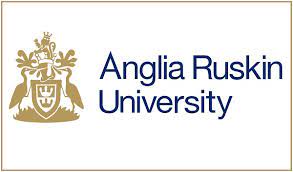Anglia Ruskin University: United Nations funds major witch-hunt project
The United Nations is funding an international project to investigate the long-term effects, and possibilities for reconciliation, following the notorious witch-hunts orchestrated in The Gambia by former president Yahya Jammeh.
Dr Mick Finlay, a psychologist from Anglia Ruskin University (ARU), is leading the transitional justice and human rights project alongside researchers from the University of The Gambia and Nottingham Trent University.
The campaign of witch-hunts was carried out in 2009 by a group of witch-hunters, believed to be from Guinea or Mali, with the assistance of members of The Gambia’s security forces.
This campaign resulted in the detention of hundreds of people accused of being witches, during which they were subject to beatings, rape and various other forms of degrading treatment.
Many deaths are thought to have resulted from the witch-hunts, and many more suffered long-term health problems and psychological trauma. In addition, those accused of being witches were left to face considerable stigma in their communities, with subsequent social rejection, discrimination and loss of community roles and relationships which continue to this day.
Witches and spirits are widely believed to exist in The Gambia and sub-Saharan Africa, particularly in rural communities. This new research will investigate who was targeted in the 2009 witch-hunts and why, as well as the long-term effects of the witch-hunt campaign on individuals accused of witchcraft and their families, on groups, and on the affected communities.
It will also focus on what those communities and individuals affected by witch hunts believe is needed for reconciliation and healing to occur. This will include consideration of local practices and traditional systems for dealing with witchcraft accusations, and how these relate to national laws.
The project will build on the findings of The Gambia’s Truth, Reconciliation and Reparations Commission (TRRC), which investigated the rule of President Jammeh, who left the country in 2017.
Dr Mick Finlay, Associate Professor of Social Psychology at Anglia Ruskin University (ARU), said:
“Based on our investigations, we will produce recommendations and an action plan for reconciliation in the communities in The Gambia affected by the witch-hunts.
“The results of this project will aid The Gambia in devising and putting in place reconciliation processes related to the witch-hunts. Our findings will be of interest to other countries going through transitional justice processes when human rights come into conflict with traditional beliefs, especially belief in witchcraft.”

